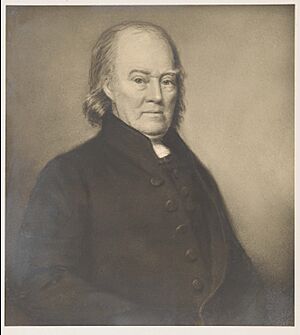John Lister (philanthropist) facts for kids
John Lister (born March 8, 1847 – died October 12, 1933) was an English man known for helping others and for his work in politics. He was also a historian who helped save important old writings.
Early Life and Education
John Lister was born in Marylebone, England. His parents were John and Louisa Ann Lister. He had two younger siblings, Charles and Anne. The family was related to Anne Lister, who was a famous diarist from the 1800s.
John grew up in Sandown on the Isle of Wight and in Halifax. He went to Winchester College, which is a well-known school. After that, he studied at the University of Oxford and then became a barrister, which is a type of lawyer.
Public Service and Politics
In 1871, John Lister became a member of the Roman Catholic Church. He was influenced by a religious movement called the Oxford Movement.
He became involved in local government. In 1873, he was chosen to be a member of the Halifax Town Council. He represented the Liberal Party. Later, in 1882, he started a group called the Catholic Working Men's Association. This group aimed to help working people who were Catholic.
Working for Change
John Lister became interested in ideas about Christian socialism. This idea combines Christian beliefs with socialist goals, like fairness for everyone. In 1891, he joined the Fabian Society, a group that wanted to make society better through gradual changes.
He also helped start the Halifax Labour Union. He was re-elected to the Town Council in 1892 through this group. The next year, he helped create the Independent Labour Party (ILP) and became its first treasurer. This party worked to represent the interests of working people.
Lister ran for a seat in Parliament for Halifax in 1893 and again in 1895. Although he did not win, he showed his dedication to improving society. He left the ILP and his elected roles in 1895.
Preserving History
In his later years, John Lister focused on managing his family home, Shibden Hall. He also spent a lot of time studying local history.
He worked with his friend Arthur Burrell to figure out a secret code. This code was used by his ancestor, Anne Lister, in her private diaries. When they understood the secret parts, Arthur Burrell suggested burning the diaries. However, John Lister knew how important they were. He chose to keep them safe instead, hiding them behind a panel at Shibden Hall.
Because John Lister saved them, Anne Lister's diaries are now very famous. In 2011, they were added to the register of the UNESCO Memory of the World Programme. This means they are recognized as very important historical documents for the whole world. They give a valuable look into life during Anne Lister's time.


